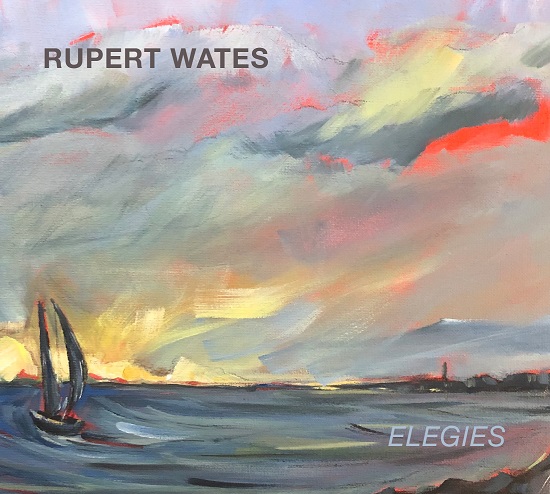
Bear with me while I get the nostalgia bit out of the way. There was a time in the 1970s when singer-songwriters from the folk world could become massive, making singles and albums that charted and selling out 2,000 capacity venues armed with only an acoustic guitar (usually a Gibson or a Martin at that time). It wasn’t just the odd one or two either; there was strength in depth as well. We had Ralph McTell, John Martyn and Richard Thompson (among others) in the UK and North American continent had Gordon Lightfoot, James Taylor and Neil Young (when he wasn’t squeezing squalls of feedback out of Old Black. Rupert Wates would have fitted in perfectly with his virtuoso finger-style guitar and mix of traditional and modern lyrical themes. Skip forward five decades and folk music’s a minority interest again. Which is why I have such a great admiration for artists like Rupert Wates. He does what he does in the knowledge that it’s a labour of love and that’s pretty common in certain areas of today’s music business.
The eleven songs on ‘Elegies’ are love songs but, as the title implies, they all convey a sense of loss as well. The musical stylings reflect the lyrical content of the songs; the more traditional folk-style lyrics tend to have fairly conventional guitar stylings while the contemporary lyrics lean towards a jazz feel, particularly when Trifon Dimitrov joins the party on double bass. Of the traditional lyrical songs, ‘Guinevere’ is based on ‘Malory’s ‘Morte d’ Arthur’ with hints of the Robin Hood legend, ‘Lady of the Glades’ is based on Keats’ ‘La Belle Dame Sans Merci’ and ‘Across the Water’ derives from Tennyson’s ‘Lady of Shalott’. ‘The Storm’, with its high-register vocal, is inspired by Poe and Coleridge and builds and darkens musically to reflect the ominous oncoming weather. ‘The Man Who Worked in Clay and Stone’ has a more modern feel and arrangement underpinning a message that you should be careful what you wish for because ultimate beauty is ultimately sterile.
Of the more modern lyrics, ‘Cathy’ is a love song with a smoky jazz club feel enhanced by the double bass, and ‘We’ll Go Dancing’ is a love song set in Paris that also hints at the speakeasy era of the 1930s in the States. It’s a mark of Rupert Wates’ craft that he’s able to create such a variety of moods with one or two guitars, occasional double bass and vocal.
‘Elegies’ is Rupert Wates’ twelfth album and it demonstrates perfectly why he’s an award-winning songwriter and performer. He’s a genuine virtuoso acoustic guitar player who plays with the kind of subtlety that you won’t be hearing on mainstream radio any time soon. If you’re in the UK and you want to see and hear him play, he has one UK date at The Cabbage Patch in Twickenham on Sunday October 1st.


